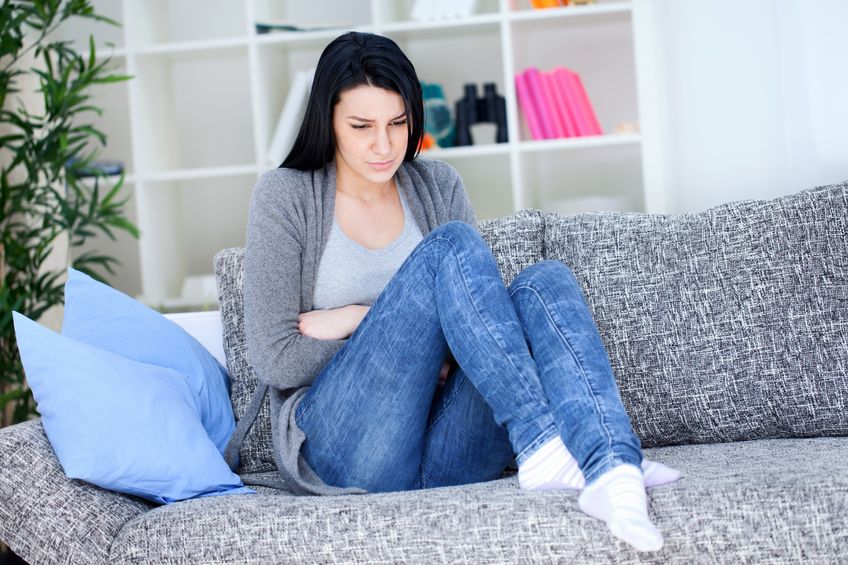
How Long Do Hemorrhoids Last? Duration, Types, and Management Tips
September 10, 2025
Hemorrhoids, also known as piles, are a common, highly uncomfortable condition that many people experience. The condition originates due to the swollen or inflamed veins in the lower rectum and anus.
If you are experiencing this condition and want to understand how long hemorrhoids typically last, continue reading to explore management strategies and hemorrhoid treatment options. This piece provides an in-depth look into hemorrhoids, their causes, symptoms, and best management strategies.
What are Hemorrhoids?
Hemorrhoids are swollen rectal veins located either inside the rectum or around the anus. They develop when there is increased pressure in the lower rectal area, often due to straining during bowel movements, constipation, or pregnancy. While they are not usually life-threatening, untreated or chronic hemorrhoids can significantly affect daily comfort and quality of life.
Originally, we are born with hemorrhoids, but they don’t bother us. It’s only when they swell and enlarge can cause irritating symptoms.
Types of Hemorrhoids
There are mainly four types of hemorrhoids.
- Internal Hemorrhoids: Occur inside the rectum and are generally painless but may cause bleeding.
- External Hemorrhoids: Found under the skin around the anus, these can be painful and itchy.
- Prolapsed Hemorrhoids: Internal hemorrhoids that push through the anus, often causing discomfort and swelling.
- Thrombosed Hemorrhoids: External hemorrhoids that form blood clots, leading to severe pain and swelling.
Symptoms and Causes of Hemorrhoids
Depending on the duration of hemorrhoids, there are different hemorrhoid symptoms. These symptoms vary according to the type, but may include:
- Rectal bleeding
- Lumps and swelling near the anus
- Painful bowel movements
- Itching or irritation around the anus
- Mucus discharge (in prolapsed hemorrhoids)
- Prolapsed hemorrhoid
What Causes Hemorrhoids?
Some activities and conditions that can create pressure and cause hemorrhoids include:
- Chronic constipation or diarrhea
- Pressure during bowel movements
- Straining during weight lifting
- Prolonged sitting
- Obesity
- Pregnancy (due to hormonal and pressure changes)
- Aging, as rectal tissues weaken over time
- Having anal intercourse
- Eating a low-fiber diet
How Long Do Hemorrhoids Last?
There’s no fixed time period for hemorrhoids. Small hemorrhoids can typically clear up on their own within a few days without any treatment. On the other hand, large, external hemorrhoids may take longer and cause unbearable pain and discomfort.
During Pregnancy
Hemorrhoids are a common problem during the third trimester of pregnancy. As the uterus grows, it puts pressure on the veins near the rectum. The extra weight during pregnancy may strain the veins in the anus and rectum.
Hormonal and physical changes can cause gastrointestinal problems, increasing the risk of hemorrhoids.
After Birth
Childbirth can increase the risk of hemorrhoids by approximately 7 times. The emergence of hemorrhoids can take place 1-2 days after childbirth. Method of delivery, prolonged birth, more than 20 minutes of straining, height, and weight of the baby can significantly increase the risk of hemorrhoids in females.
Risk factors that can increase the hemorrhoid issue include:
- Lack of a fiber-rich diet
- Living a sedentary lifestyle
- Constipation
- Chronic diarrhea
- Straining while having a bowel movement
The healing time for hemorrhoids can range from a few days to several weeks. Depending on the type, severity, and management, symptoms can persist longer than two weeks.
- Mild Hemorrhoids: Small internal or external hemorrhoids may resolve within a few days to a week with proper care.
- Moderate Hemorrhoids: May take 1–2 weeks to subside, especially if aggravated by constipation or straining.
- Severe or Chronic Hemorrhoids: Chronic hemorrhoids or prolapsed hemorrhoids can persist for weeks or recur frequently if lifestyle changes aren’t adopted.
- Thrombosed Hemorrhoids: These may take 2–3 weeks to heal, though pain often improves in a few days once the clot dissolves.
How to Speed Hemorrhoid Recovery?
While hemorrhoids often heal on their own, the hemorrhoid flare-up duration can be shortened with proper care:
- Dietary Adjustments: A hemorrhoid’s high fiber diet (whole grains, fruits, vegetables) helps soften stools
- Hydration: Drinking plenty of water prevents constipation
- Sitz Baths: Warm water soaks relieve pain and swelling
- Cold Compresses: Reduce inflammation for external hemorrhoids
- Avoid Straining: Healthy bathroom habits minimize rectal pressure
- Regular Exercise: Promotes bowel movement regularity
Management and Treatment of Hemorrhoids
For persistent cases, medical hemorrhoid treatment may be necessary. Seeking professional care ensures a faster recovery and helps prevent recurrence. Hemorrhoid treatment options include:
- Hemorrhoids medication
- Minimally invasive procedures
- Surgery
Conclusion
So, how long do hemorrhoids last? The answer varies; mild cases may resolve within days, while more severe or chronic hemorrhoids can last weeks or longer. The major treatment for hemorrhoids is timely care and lifestyle modifications. Taking preventive measures shared in the piece, such as a fiber-rich diet, hydration, and proper hygiene habits, can help avoid future flare-ups.
FAQs
Q. What kind of doctor treats hemorrhoids?
A: A gastroenterologist, colorectal surgeon, or proctologist typically diagnoses and treats hemorrhoids.
Q. Do hemorrhoids itch?
A: Yes, itching is a common symptom, especially with external hemorrhoids.
Q. What does a hemorrhoid look like?
A: External hemorrhoids may appear as small, swollen lumps near the anus. Internal hemorrhoids are not usually visible unless prolapsed.
Q. How long do external hemorrhoids last?
A: With self-care, external hemorrhoids may improve within 7–10 days. Severe cases may persist for a few weeks.
Q. How long do internal hemorrhoids last?
A: Small internal hemorrhoids typically resolve within a few days, while larger or prolapsed ones may take several weeks.
Q. What causes hemorrhoids?
A: They result from increased pressure on rectal veins due to constipation, straining, pregnancy, or prolonged sitting.
Q. Do hemorrhoids go away on their own?
A: Yes, mild hemorrhoids often heal without medical treatment, though lifestyle changes are key to preventing recurrence.
